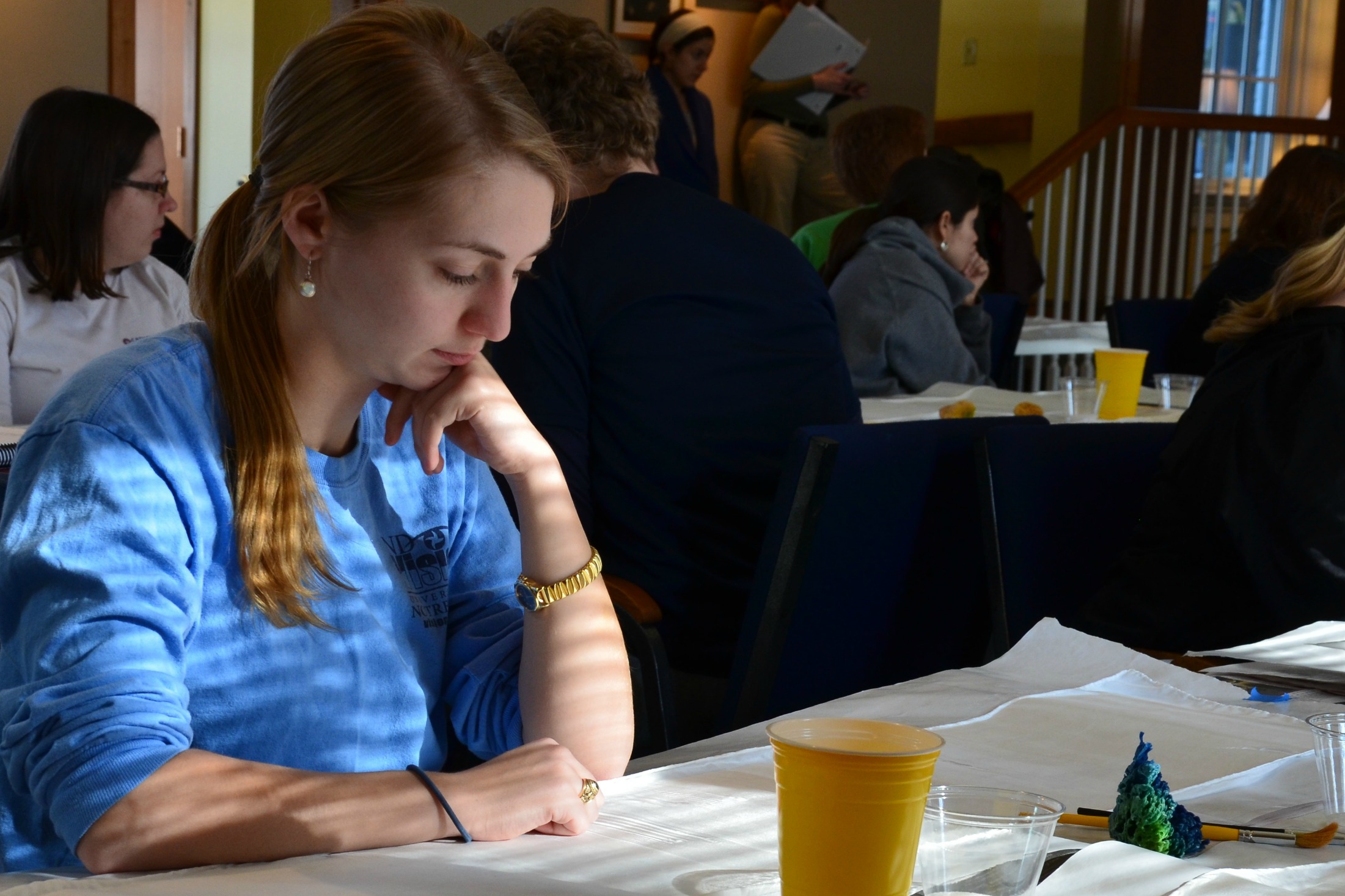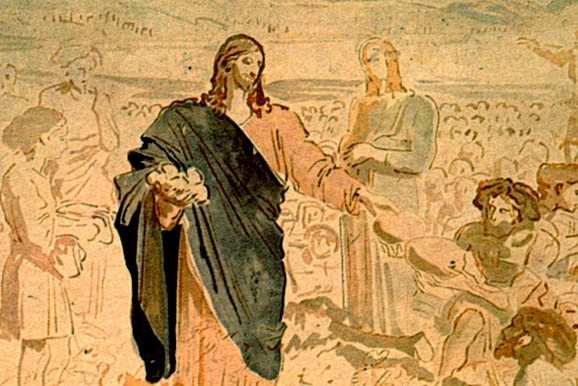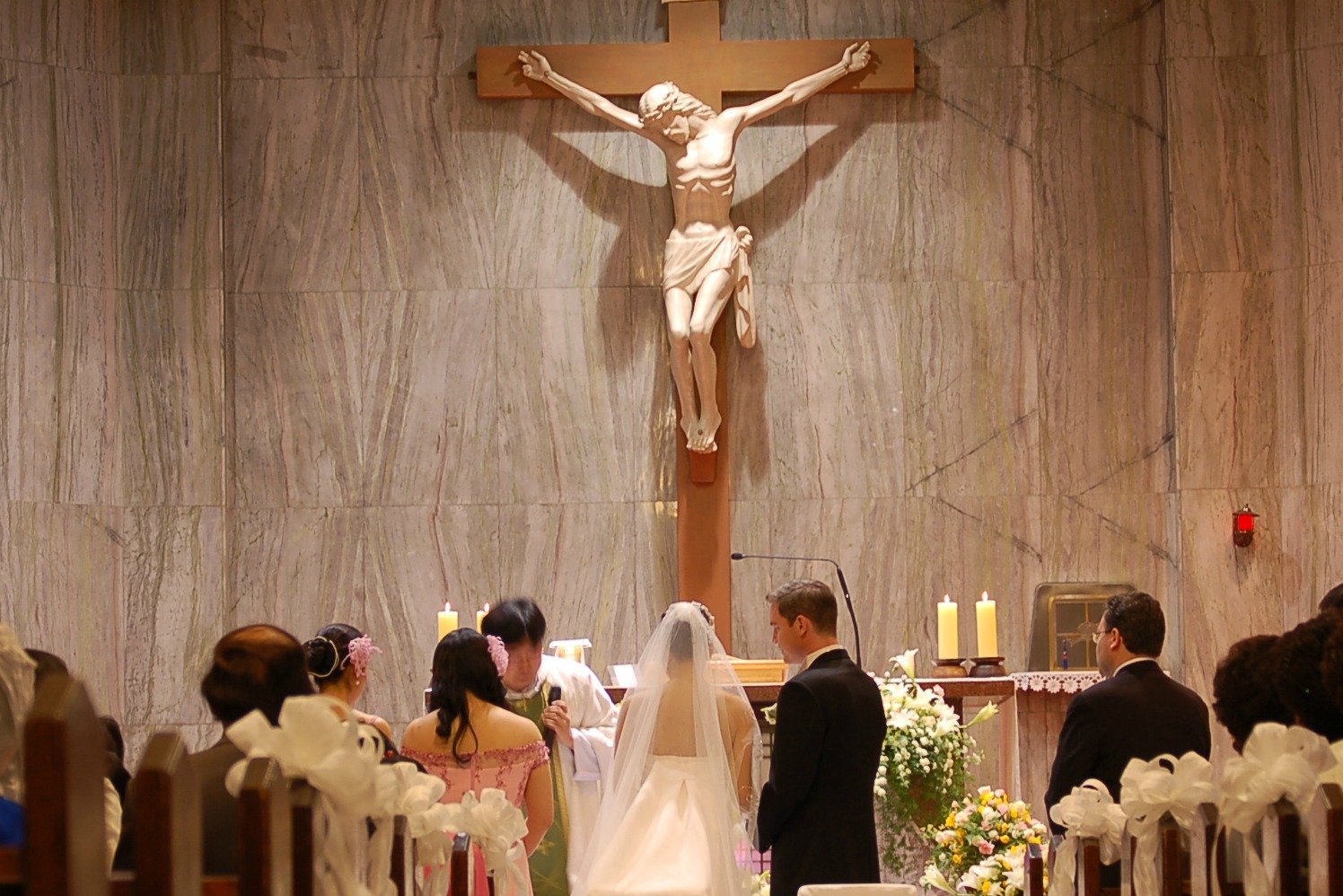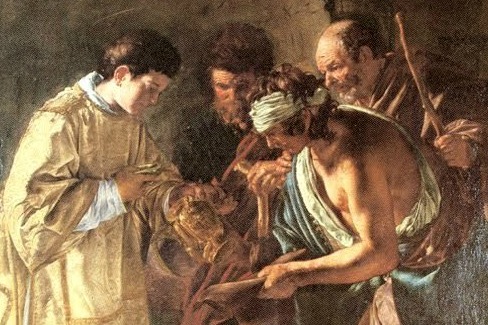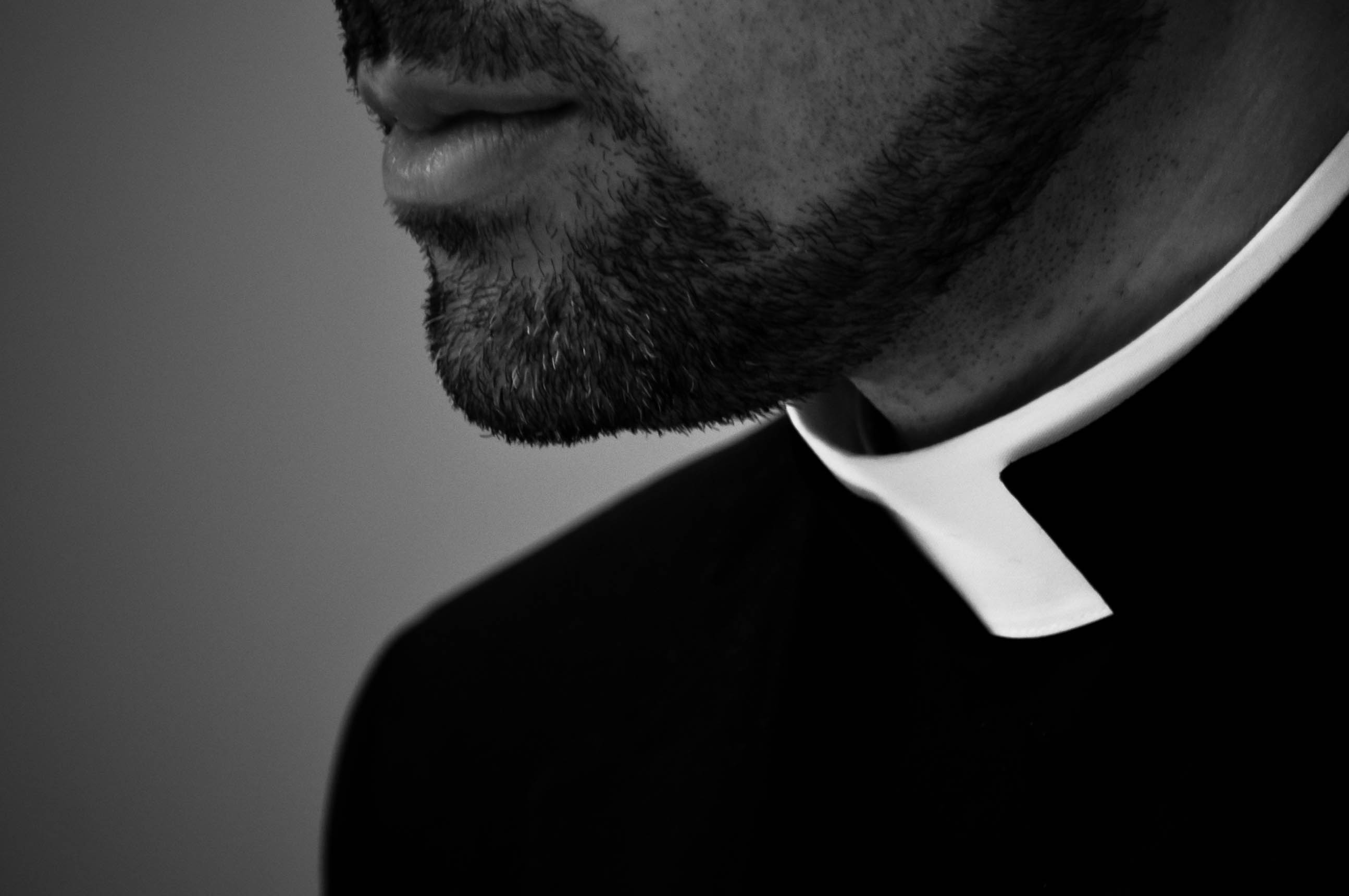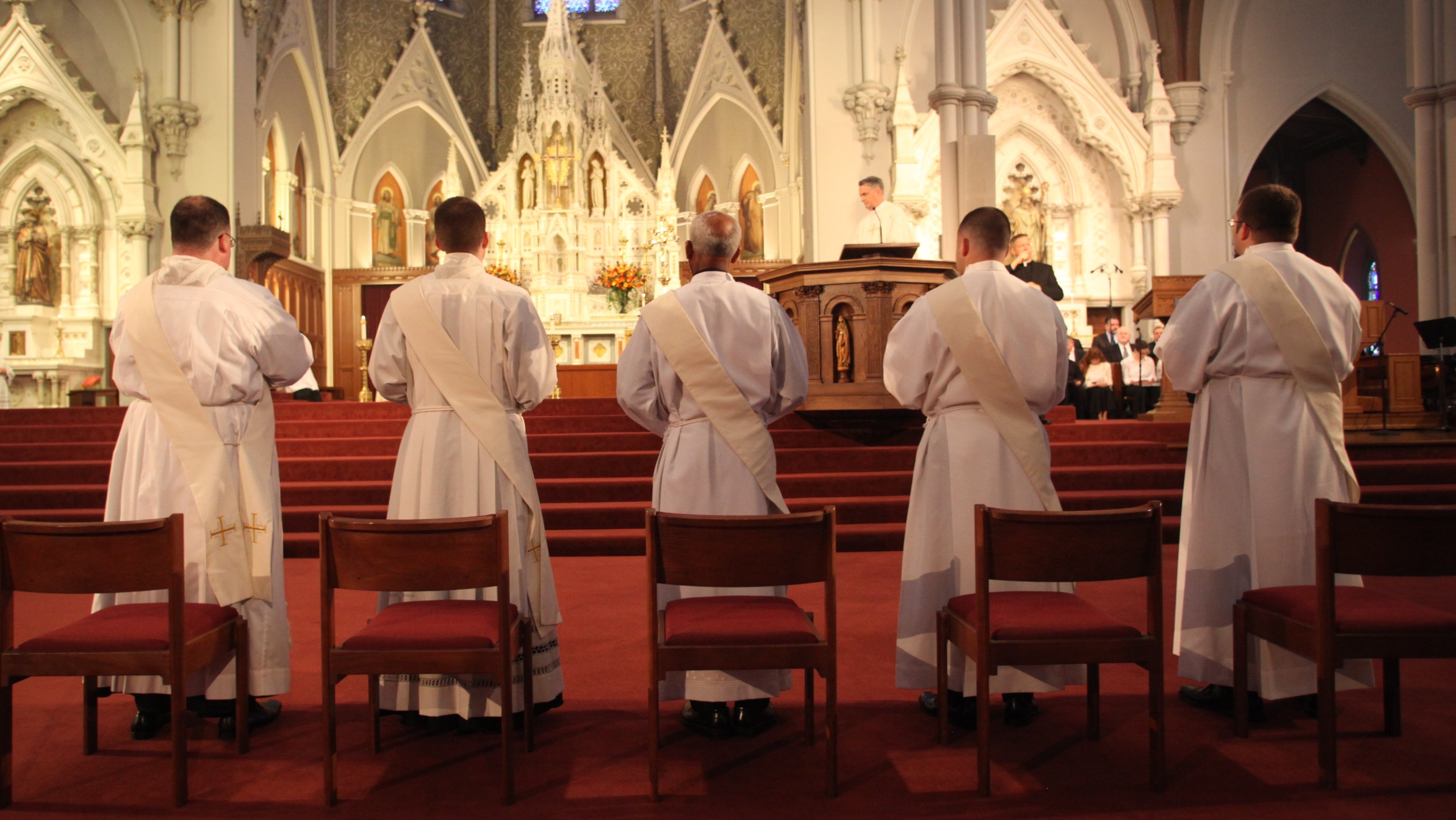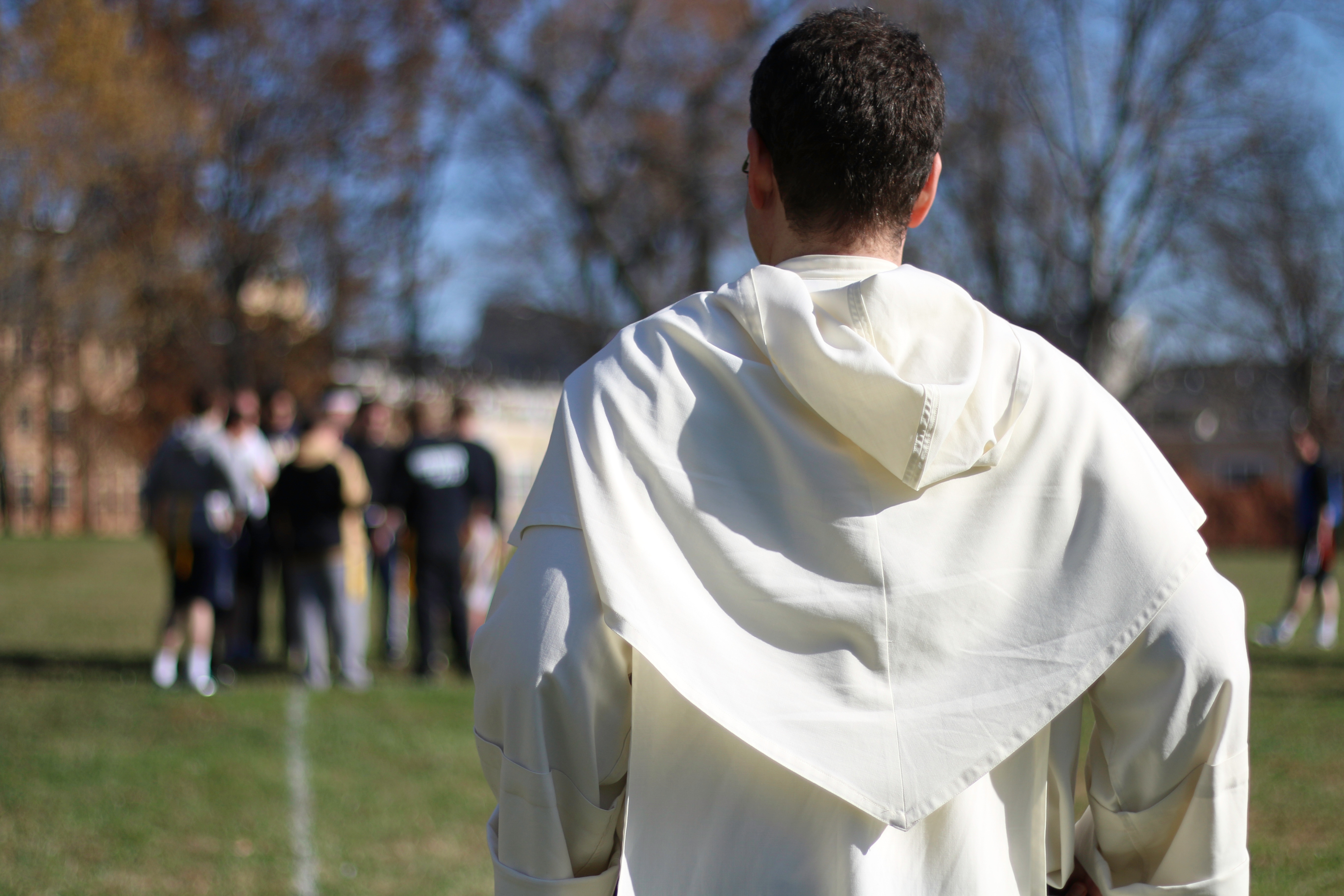I stopped writing cursive in the sixth grade. If I were to handwrite this sentence for you, you would likely find my penmanship immature, unrefined, and inefficient. Its unwieldy form and bubbly profile—adorned with loopty-loops and fancy curls—would sit fat, proud, and unapologetic upon the page, the way a toddler wears her protruding belly. Such is my cursive, hopelessly stuck in the grasp of my...
All posts filed under: ESSAYS
The Dangerous Art of Becoming
The Pedagogy of Faith
Blessed be God!
Essays / Practice / Archive / catechesis / Eucharist / education / Featured / formation / gerardbaumbach / mystagogy
Thoughts on a Theology of Teaching: “You give them something to eat”
When I found out that I got a job teaching high school theology, I began to ask all of the teachers I knew what advice they had for me. I heard all kinds of things about classroom management and lesson plan preparation. However, the one piece of advice that has stayed with me came from a professor at Notre Dame.
Essays / Practice / Archive / Catholic education / Jean-Baptiste de la Salle / John Bosco / josephpedersoncsc / education / Featured
Within Catholicism, there is a significant vocation crisis, and it relates to the sacrament of marriage. In 1970, there were 426,309 sacramental celebrations of marriage in the United States with a Catholic population of 51 million.[1] In 2015, there were 148,134 marriages with a Catholic population of 81 million. While quantitative data does not tell a narrative, it remains the case that sacramen...
The Deacon and the Family: Mercy's Presence
Through Baptism, the Family of the Church is missionary by nature and increases her faith in the act of sharing that faith with others, above all, with her children. The very act of living a life of communion as a family is the primary form of proclamation. In fact, evangelization begins in the family, which transmits corporeal as well as spiritual life. . . . The family is thus an agent of pasto...
Practices of Priesthood
I have been quite fortunate in my twenty-three years of priesthood to have known some superb role models of priestly life and sacerdotal zeal; unsurprisingly, most of them are older than I am, but in fact a few of them are younger. And the lessons I have learned from them in terms of pastoral fruitfulness can, I think, be boiled down to four simple—stunningly simple—principles. Now I say “fruitful...
My assignment, “The Deacon as an Agent of Change in the Community,” is a daunting one, to say the least.* I tried to refuse the great honor of tackling this topic, suggesting some better qualified people to speak to the dynamics of social change, informed by Catholic Social Teaching. One of several liabilities I bring to this task is that not only am I not a deacon myself, but the theology and pra...
Preaching at the Liturgy of the Hours
How might we preach at the Liturgy of the Hours? On the one hand, what is unique about preaching in this context? Is there something about this setting which suggests a particular homiletic approach different from preaching at Sunday Eucharist? On the other, what does preaching at the Hours have in common with other forms of liturgical preaching?
Essays / Practice / Divine Office / Lauds / Liturgy of the Hours / preaching / Vespers / Scripture
It may seem absurd to entertain even for a moment the idea that monks, friars, and brothers might be models of healthy masculinity. First of all because our vows of poverty, chastity, and obedience might rule us out us as plausible male figures. Poverty and obedience suggest that we are irresponsible people, fleeing the ordinary burdens of manhood, such as having a job, acquiring a home, taking de...

